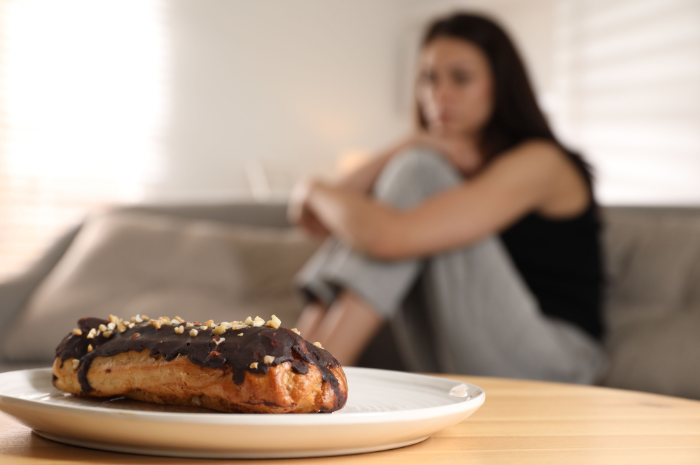Download your FREE ebook!
Do you eat emotionally?

If you do eat for emotional reasons, then you are like (just a guess) about 90% of people in this world.
It’s very natural…we grew up linking emotions to food. As babies, we would be soothed by our mom’s breast or bottle, and as we grew up celebrations such as birthdays or Eid were always associated with food. And if your parents used candy or ice cream as a reward for ‘being good’…well, I’m sure you know how that turned out.
There are times when it stops being natural…but before I get into that, let’s define what eating emotionally even means.
Put simply, it’s eating for any reason other than feeling truly hungry. We don’t NEED food, but it helps distract us from the difficult feelings we are trying to avoid.
When does it stop being ‘natural’?
It’s when after eating we feel worse. Physically we feel stuffed, full, and bloated. Emotionally we feel guilt and shame.
So if we don’t NEED food, what do we really NEED?
During consultations with clients, we start by finding out what they actually NEED. Here are examples from my clients (their real names have been changed):
- Dalia needed to take care of herself just as much as she was taking care of her family.
- Sheikha needed to prioritize her sleep. She was eating because of tiredness.
- May was moving house after getting a divorce and used food to distract herself from the stress.
So if you feel that you are eating emotionally several times a week, or maybe even every day, start by asking yourself “What do I really need now?”
For many, it’s not clear. And even if they do know, it’s difficult to take the next step. Unfortunately, many think that restriction or dieting is a solution, but it actually makes the problem worse. And that’s where working with a coach or therapist can be very helpful.
During six 50-minute online sessions we will work on:
- Identifying what emotions and fears are behind your emotional eating.
- Understanding in what ways your relationship with food from childhood has created an emotional bond with food.
- Learning, practicing, and implementing simple and effective daily emotional tools that become automatic responses to situations and emotions.
- Stopping the dieting cycle and food restriction that exacerbates emotional eating.
- Analyzing your food and mood journal to recognize the triggers and how best to deal with them.
- Eliminate unnecessary emotional stressors and create better coping mechanisms for those that cannot be eliminated, so that you can be in control of food (and not the other way around).
- Create new habits that will support your health both physically and emotionally.
If you’re wanting more step-by-step guidance on how to eat intuitively and overcome emotional eating then consider booking my emotional eating consultation package. Get in touch to find out more.





Leave A Comment